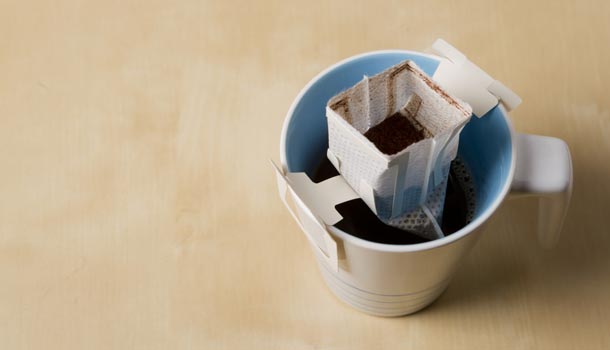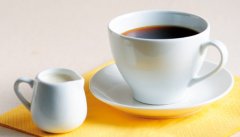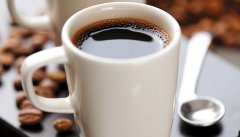Drinking individual coffee leads to more calcium loss? Then have some espresso.

For professional baristas, please follow the coffee workshop (Wechat official account cafe_style)
Worry about osteoporosis, latte or cappuccino is a good choice.
Worrying about bone loss is probably the main reason why many women are "looking forward to but afraid of being hurt" about coffee.
Coffee has long been considered a risk factor for osteoporosis. Because its diuretic effect increases the excretion of water from the body, previous studies have found that caffeine increases the excretion of calcium in the urine. So, does this mean that drinking coffee leads to more calcium loss?
In fact, not necessarily, because a careful study of the body's running mechanism shows that in order to achieve systematic balance, the high calcium absorption rate and the increase in calcium excreted through the urine does not mean that there is a problem with the maintenance of bone mineral density; on the contrary, it is after menopause that estrogen leads to rapid bone loss, which is the most important factor affecting bone mineral density.
From the perspective of epidemiological data, past studies have found that caffeine intake is not associated with bone loss and fracture incidence in women aged 20 to 50, but if older women regularly drink more than four cups of coffee a day and have a smoking habit, it is likely to affect bone mineral density.
Another trial involving 3170 women aged 50 and 84 also pointed out that drinking drinks containing more than two units of caffeine (two cups of coffee or two cups of tea) a day increased the risk of hip fractures by nearly 70 percent, indicating that women after middle age should still be careful to control their daily coffee and tea consumption and increase their calcium intake from their diet in order to slow down bone loss.
Therefore, Hsiao Ning-hsin, a professor in the Department of Biochemistry and Technology at National Taiwan University, suggests that coffee lattes with fresh milk or milk powder can make up for the loss of calcium in the body, while she likes to drink cappuccino with mellow milk, which is also coffee with fresh milk.
Important Notice :
前街咖啡 FrontStreet Coffee has moved to new addredd:
FrontStreet Coffee Address: 315,Donghua East Road,GuangZhou
Tel:020 38364473
- Prev

Good news for diabetics: decaf is less likely to aggravate diabetes.
Professional baristas Please follow the Coffee Workshop (official Wechat account cafe_style) in recent years, a series of studies published by European and American academic institutions have found that fasting blood sugar and postprandial blood sugar of coffee drinkers are significantly lower than those of non-coffee drinkers. Scholars from the National Institute of Public Health of the Netherlands studied 17000 people for 10 years and published them in the authoritative medical journal tickle Needle.
- Next

Should seniors avoid single-serve coffee? Age is not a major factor in stopping coffee.
Professional barista exchange please pay attention to coffee workshop (Weixin Official Accounts cafe_style) Mackay Hospital nutritionist Zhao Qiang pointed out that 45~50 minutes after drinking coffee, the blood caffeine concentration is the highest, the efficacy can be maintained for about 3~4 hours. In general, most adults have a good tolerance for caffeine, but as they age, they may drink it because of the decline in metabolism.
Related
- Beginners will see the "Coffee pull flower" guide!
- What is the difference between ice blog purified milk and ordinary milk coffee?
- Why is the Philippines the largest producer of crops in Liberia?
- For coffee extraction, should the fine powder be retained?
- How does extracted espresso fill pressed powder? How much strength does it take to press the powder?
- How to make jasmine cold extract coffee? Is the jasmine + latte good?
- Will this little toy really make the coffee taste better? How does Lily Drip affect coffee extraction?
- Will the action of slapping the filter cup also affect coffee extraction?
- What's the difference between powder-to-water ratio and powder-to-liquid ratio?
- What is the Ethiopian local species? What does it have to do with Heirloom native species?

